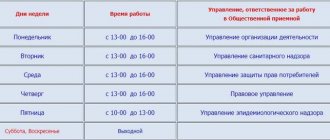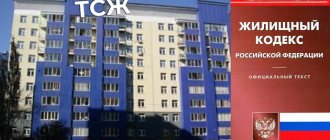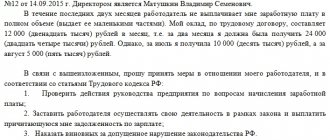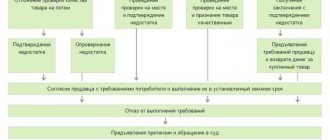Rospotrebnadzor – Federal Service for Supervision of Consumer Rights Protection and Human Welfare. It was created by Decree of the President of the Russian Federation “On the system and structure of federal executive bodies” dated March 9, 2004 No. 314.
Rospotrebnadzor works based on the Decree of the Government of the Russian Federation “Issues of the Federal Service for Supervision in the Sphere of Protection of Consumer Rights and Human Welfare” dated 04/06/2004 No. 154, as well as the Regulations approved by the Decree of the Government of the Russian Federation of 06/30/2004 No. 322 “Rospotrebnadzor: its functions, powers, rights and responsibilities.”
Please note that any company or private entrepreneur is required to notify Rospotrebnadzor about the start of its activities if it falls under Article 8 of Federal Law No. 294. Depending on the type of activity, a Rospotrebnadzor license for a particular type of activity may also be required.
○ Scope of activity of RosPotrebNadzor.
The Federal Service for Supervision of Consumer Rights Protection and Human Welfare (Rospotrebnadzor) is a federal executive body that carries out the functions of developing and implementing state policy and legal regulation in the field of consumer rights protection, developing and approving state sanitary and epidemiological rules and hygienic standards, as well as on the organization and implementation of federal state sanitary and epidemiological supervision and federal state supervision in the field of consumer protection. (Clause 1 of the Decree of the Government of the Russian Federation of April 30, 2004 No. 322).
The Federal Service for Supervision of Consumer Rights Protection and Human Welfare is the official name of Rospotrebnadzor, which is unknown to most citizens. Its functions are varied because it combines the functions of various departments. In particular, this organization:
- Carries out sanitary and epidemiological control of the activities of catering enterprises, as well as water bodies for compliance with established standards.
- Monitors the development of projects and further construction of buildings and regulates compliance with operational requirements.
- Checks the working conditions of employees of various organizations.
- Monitors air and soil conditions and ensures proper waste disposal.
- Monitors the activities of educational institutions.
- Checks the environmental situation, as well as the sanitary and epidemiological state of supervisory authorities.
- Monitors compliance with consumer rights and freedoms.
- Checks the compliance of objects with hygienic standards and issues appropriate conclusions.
- Conducts certification of workers whose activities require compliance with sanitary and epidemiological standards.
- Monitors the activities of its own departments and prepares statistical reports.
Priority areas of activity
The federal service has a great influence on various spheres of life of the population. The activities of Rospotrebnadzor are aimed at identifying violations of human rights. Currently it covers nine areas. Each of them is actively working to identify abuses. The main areas of activity include:
- epidemiological surveillance - monitoring the epidemiological situation in the country, timely notification of the situation that is developing regarding specific diseases (rabies, typhoid, tuberculosis, etc.),
- sanitary supervision - preparation of events aimed at improving the health of the nation, as well as their implementation, informing the population about the principles of rational nutrition, checking the quality of products, notifying about products that do not comply with the standards of the Russian Federation and preventing its spread
- civil service and personnel - selection of employees for territorial representative offices of the service, recommendations for the use of certain types of software in the performance of official duties, organization of competitions for filling vacant positions,
- consumer protection - organizing events aimed at educating the population regarding legal rights; advising citizens on emerging issues related to consumer rights,
- scientific support - holding scientific and practical conferences, work of the Academic Council,
- international cooperation - interaction with other countries to control diseases (the sanitary and epidemiological situation), the quality of medications, as well as the observance of consumer rights in other areas,
- organization of activities - coordination of the activities of the Federal Service for the Protection of Rights and its territorial bodies,
- activities within the WTO - resolving pressing issues arising in the process of international trade,
- activities within the CU (Customs Union) - monitoring compliance with the established requirements of the Agreement on Sanitary Measures, which has been in force since July 1, 2010 (adopted by Decision No. 28 of December 11, 2009), determining the need for registration of certain types of products and their registration.
○ Legislation on Rospotrebnadzor.
The activities of Rospotrebnadzor are approved by the Decree of the Government of the Russian Federation “On approval...” dated June 30, 2004 No. 322.
The main regulatory documents that regulate the activities of this service are:
- Law of the Russian Federation “On the Protection of Consumer Rights” dated 02/07/1992 No. 2300-1.
- Federal Law “On the Sanitary and Epidemiological Welfare of the Population No. dated March 30, 1999 No. 52-FZ.
- Federal Law “On the Quality and Safety of Food Products” dated January 2, 2000 No. 29-FZ.
- Federal Law “On Immunoprophylaxis of Infectious Diseases” dated September 17, 1998 No. 157-FZ.
- Federal Law “On Radiation Safety of the Population” dated 01/09/96 No. 3-FZ.
Also, Rospotrebnadzor must carry out its activities in accordance with the Constitution of the Russian Federation, acts of the President and Government of the Russian Federation, acts of the Ministry of Health and international treaties.
○ Who can Rospotrebnadzor check?
The greater the scope of control of the supervisory authority, the more organizations risk being subject to its inspection. In this case, Rospotrebnadzor is a leader that can inspect almost any enterprise.
However, most often organizations that work closely with the population (educational, trade, service sector) are audited. Thus, Rospotrebnadzor controls any activity related to consumer relations.
It is almost impossible to avoid an inspection if it has already been scheduled. The maximum that an enterprise can do is to minimize the risk of audits based on complaints from its employees or customers.
Who is subject to inspection by Rospotrebnadzor?
The answer to this question is very simple!
This department can inspect almost any enterprise , but most often they inspect enterprises in the service sector. These are food enterprises, catering establishments, schools, kindergartens (preschool educational institutions), pharmacies, medical institutions, hotel services, etc.
Here is a far from complete list of organizations that may be subject to inspection by employees (inspectors) of Rospotrebnadzor.
○ Procedure for carrying out verification.
When visiting an inspected enterprise, documentation is subject to audit. To present it, an official request is drawn up from Rospotrebnadzor, which is sealed with a copy of the inspection order.
At the same time, it is important to know that since 2020, the inspector does not have the right to request documents that can be checked independently, because they are in the state register (for example, TIN). If the required document is not freely available, you cannot avoid providing it - this will result in an administrative fine.
After the request, you have 10 days to prepare the requested documentation, a copy of which must be certified by your manager’s signature.
The audit itself begins with the inspector presenting his ID and an order about who and on what basis he will audit. The result of such an action is an inspection report, which lists the identified violations and makes recommendations for their elimination.
○ What does the territorial department of Rospotrebnadzor check?
At the request of citizens, the territorial department of Rospotrebnadzor can check:
- Documentation (medical and work records, educational documents).
- Documents confirming product quality (certificates, licenses, etc.).
- Check the cash register for proper operation.
- Control logs for correct filling.
- Premises to comply with sanitary and epidemiological standards.
Inspectors can draw up protocols and impose fines if violations are found, as well as give instructions for actions to eliminate the identified non-compliance with the law.
It is also possible to carry out test purchases to check quality, remove samples and specimens for inspection.
Can penalties apply?
Organization managers are responsible for failure to comply with Rospotrebnadzor requirements. The most frequent inspections are carried out on enterprises engaged in the sale of food products or providing catering services. Failure to comply with established sanitary and epidemiological standards leads to fines. For violations that result in mass infection (disease) of people or animals, both monetary penalties and criminal liability in the form of imprisonment for up to five years are applied (depending on the severity of the consequences of the epidemic).
For minor violations (failure to issue a check), you may be required to write an explanatory note. Failure to provide or provision of unreliable or knowingly false information in a notification is subject to liability under Article 19.7.5-1 of the Code of Administrative Offences. A fine is imposed on officials (including individual entrepreneurs) in the amount of up to ten thousand rubles, the minimum possible amount is five thousand rubles; for legal entities - up to thirty thousand rubles (minimum - twenty thousand rubles).
Rospotrebnadzor performs important functions to maintain order and protect the rights of citizens. He controls several areas of activity, providing supervision and timely response to possible violations. Inspections and monitoring are the main tools for analyzing the situation in the country. Maintaining ongoing reporting allows you to track the dynamics of various important indicators.
○ What documents need to be provided?
The verification is confirmed by an order, with which you must be familiarized with in advance. This document will contain a list of documents to be verified. During the audit, the employee looks at:
- Signs.
- Consumer corner.
- The cost of goods and services certified by the director.
- Founding documents.
- Agreement for waste removal and disinfection measures.
- Log books.
- Licenses to conduct the specified type of activity.
The listed documents are checked for compliance with legislative and regulatory acts and regulations.
○ What is beyond the competence of Rospotrebnadzor?
Despite all the powers available to Rospotrebnadzor employees, their capabilities are not unlimited. Thus, they do not have the right to the following actions:
- Carrying out a scheduled inspection without the presence of officials or their representatives (the exception is the presence of a threat to the life and health of citizens or representatives of flora/fauna).
- Seizure of original documents or a requirement to present documents not related to the inspection.
- Exceeding the inspection deadlines established by law.
- Selection and removal of samples or specimens for research beyond the powers established by the order.
- Issuance of instructions to legal entities and individual entrepreneurs to conduct control at their expense.
Basic rights and responsibilities of the consumer protection service
Rospotrebnadzor is a government agency. An important area of its activity is the protection of citizens' freedoms. In controversial situations, he assumes the role of an independent person who exercises control over the observance of the rights and interests of the population. For this reason, this federal service has extensive and exclusive rights. Upon her request, the necessary documents must be provided.
Rospotrebnadzor has the right to involve new participants in the process. Upon request or demand, the case is considered on the basis of the evidence presented. This government agency has the right to submit petitions and has unlimited access to trial materials. The federal service is endowed with unlimited rights, but, naturally, only in those areas that are directly within its competence.
Article 46, part two of the Civil Procedure Code contains a list of procedural actions possible for the federal service. When upholding (protecting) legitimate interests, she has all the rights and responsibilities that are vested in the plaintiff. The exception is the signing of a settlement agreement and the obligation to pay costs (legal). If for any reason the plaintiff abandons the claim or the government agency ceases to support the demands previously put forward on behalf of the plaintiff, then the following procedural consequences are provided:
- if the claim of the legal representative is rejected, the case continues,
- if the plaintiff refuses, the proceedings are terminated (provided that the rights and interests of other persons are not violated and there are no circumstances contrary to the law).
In addition to defending the legitimate interests of citizens, Rospotrebnadzor is obliged to monitor and coordinate the work of its territorial departments. They, in turn, must conduct inspections (sanitary and epidemiological) and promptly respond to applications received from the population. For them, periodic reporting is important, which provides the main management with up-to-date information. There is constant monitoring of violations and abuses of the legal rights of citizens.
○ Types of checks.
Rospotrebnadzor inspectors carry out different types of inspections.
✔ Scheduled checks.
This type of audit is carried out in accordance with the annual plan, which can be found on the official website of the department. There you can find information about when, by whom and in relation to whom the check will be carried out, as well as its duration.
The auditee must be notified of the planned audit no later than 3 days before its start by sending a registered letter with return receipt requested or by personal delivery of the document.
Scheduled inspections are carried out every three years.
✔ Unscheduled inspections.
Such checks are carried out in the following cases:
- The deadline for implementing the recommendations issued has expired.
- The department received an appeal from an individual.
- A violation of consumer rights has occurred.
If the application does not indicate specific facts of violation or it is submitted anonymously, the verification will be denied. It should also be taken into account that unscheduled inspections are valid only with the permission of the prosecutor's office, as a supervisory authority.
Notification of an unscheduled inspection must be given one day before its start. In emergency cases, its complete absence is allowed.
✔ On-site and documentary checks.
This type of inspection can be either scheduled or unscheduled. In the first case, the audit is carried out on-site; not only documentation is checked, but also equipment, premises, and territories.
A documentary check is carried out without a personal visit; the person being checked delivers the required documents to the department independently. If serious violations are identified, a repeat on-site inspection is possible.
Is it necessary to notify Rospotrebnadzor about the start of activities?
When deciding to engage in certain types, it is imperative to inform the Federal Service about this fact. Activities for which notification is required are included in a list. It can be found by visiting the website of the territorial authority. Failure to provide this information will result in administrative liability.
Notification of the start of certain types of activities, according to the requirements of Rospotrebnadzor, must be provided after state registration and registration, but before the actual implementation of work or services begins. There are three ways to do this. The first is in person, by printing and filling out the necessary documents. The second is to mail completed and certified papers. The third is to use the Gosuslugi portal (www.gosuslugi.ru); To generate electronic documents, you will need an electronic signature.






